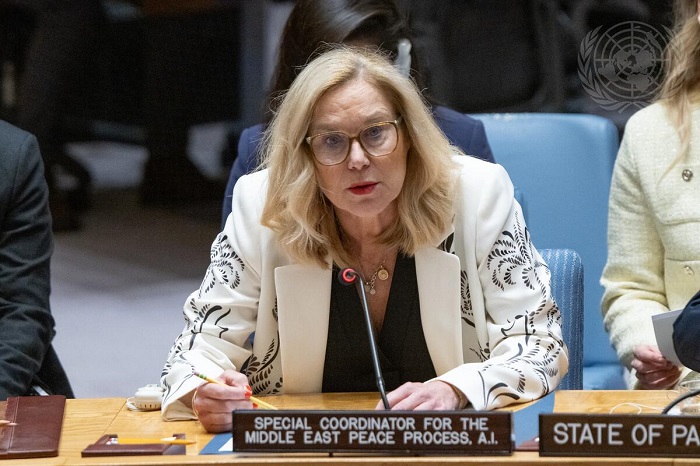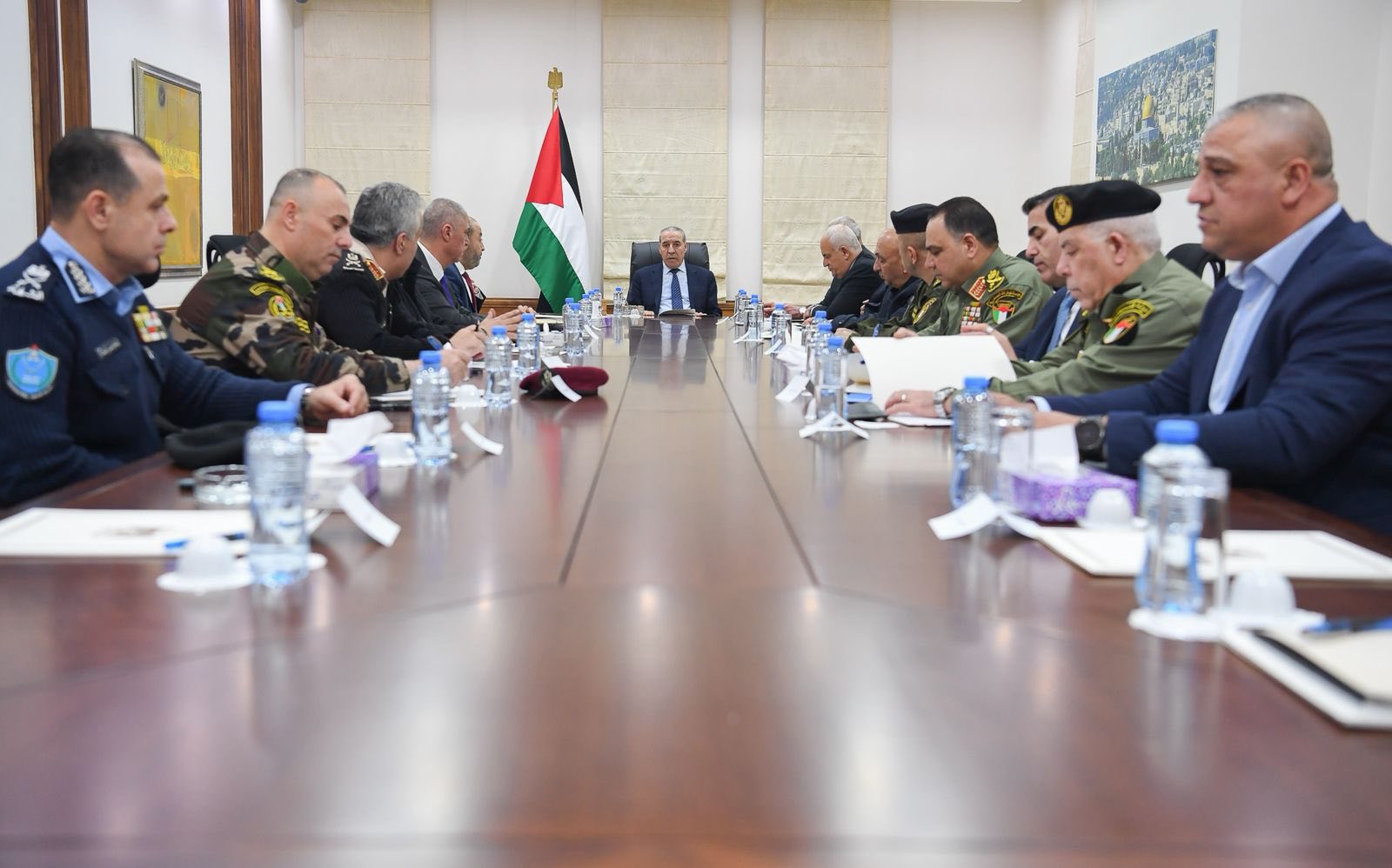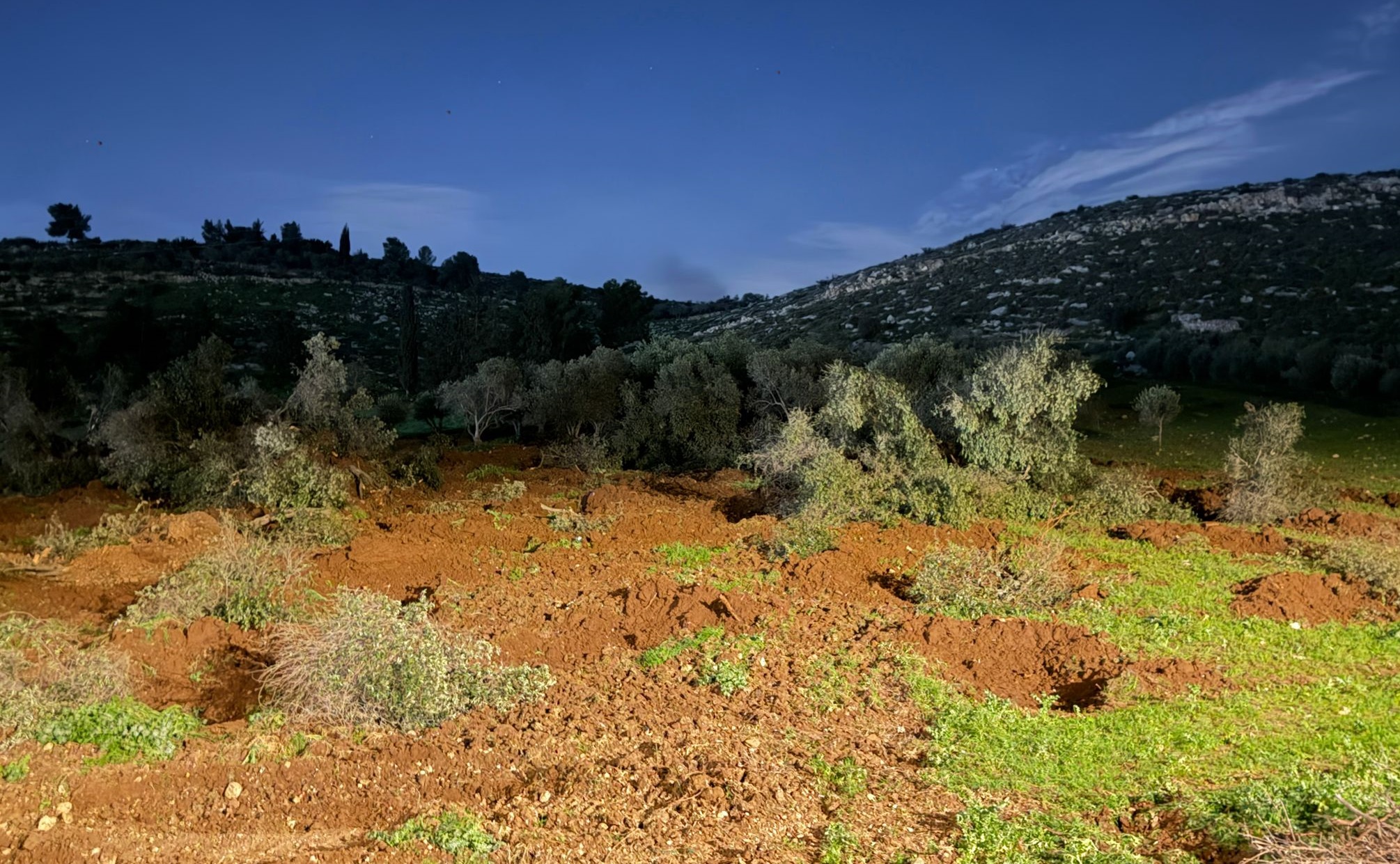NEW YORK, February 25, 2025 (WAFA) – A United Nations official said Tuesday that far more remains to be done to address over 15 months of deprivation of basic human necessities in the war-torn Gaza Strip.
Addressing a briefing of the UN Security Council on the situation in the Middle East, Sigrid Kaag, UN Special Coordinator for the Middle East Peace Process stated: “In Gaza, death, destruction, and multiple displacement has been inflicted upon the Palestinian civilians in the Gaza Strip. While the first phase of the ceasefire has provided a surge of much-needed relief, far more remains to be done to address over 15 months of deprivation of basic human necessities and above all a loss of human dignity.”
“The Middle East today is undergoing rapid transformation—its scope and impact remain uncertain, but it presents a historic opportunity,” she said.
While she voiced her optimism that “The people of the region can emerge from this period with peace, security, and dignity,” she cautioned that “this may be our last chance to achieve the two-State solution.”
Commenting on the phases of the Gaza ceasefire agreement, she added: “Since the first phase of the ceasefire came into effect on 19 January, the United Nations, NGOs and member states have expedited and scaled up life-saving humanitarian assistance into Gaza. Improved access and security conditions have allowed for the delivery of assistance and services.”
While calling for addressing the immediate needs in Gaza, she emphasized the need to “build a future that offers protection, recovery, and reconstruction.” She pointed out that initial estimates indicate that $53 billion will be required for this effort.
“Palestinians – Palestinian civilians – must be able to resume their lives, to rebuild, and to construct their future in Gaza. There can be no question of forced displacement,” she stressed.
While referring to the efforts aimed at planning for Gaza’s future, she highlighted the need to ensure that “Gaza remains an integral part of a future Palestinian State” and that “Gaza and the West Bank including East Jerusalem are unified politically, economically, and administratively.”
She also pointed out that “There will be no long-term IDF presence in Gaza.”
She made four key requests, “First, continued support for the full realization of the ceasefire deal, including the release of all hostages. This is critical.”
“Second, it is crucial not to lose sight of the dangerous dynamics in the West Bank and urgent de-escalation which is needed,” she added.
As part of the third request, she urged the international community “to support the Palestinian Authority in its reform efforts and its resumption of responsibilities in the Gaza Strip. Palestinian security forces should also be empowered to carry out their responsibilities in areas under their control.”
As part of the fourth request, she called for the provision of political and financial support to Gaza's recovery and reconstruction efforts.
She voiced her concerns over Israeli “military operations, attacks and mounting violence in the West Bank,” while noting that “Casualties, destruction, and displacement continue to be reported, particularly in Jenin, Tubas, and Tulkarm governorates, where refugee camps and infrastructure are heavily impacted.”
She said that she was alarmed by “the killing of a pregnant woman and young children during these operations. These incidents must be thoroughly investigated and those responsible held to account.”
On the issue of Israeli settler-colonialism, she cautioned that ongoing Israeli colonial construction along with “continued calls for annexation, present an existential threat to the prospect of a viable and independent Palestinian State and thereby the two-State solution.”
She referred to the Israeli legislation banning UNRWA from operating in the occupied territories, while reiterating that “UNRWA’s work remains essential and must be allowed to continue unimpeded.”
K.F.











